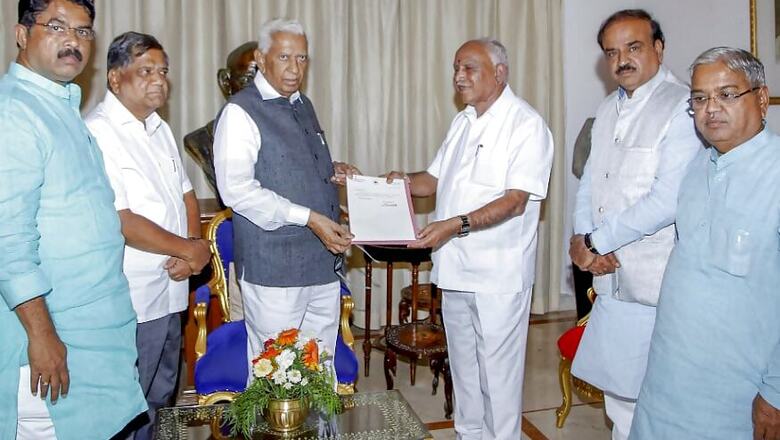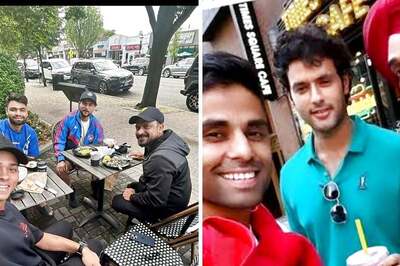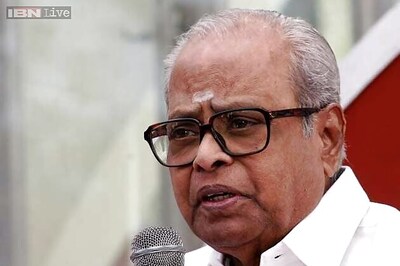
views
The dramaturgy in political melodrama of Karnataka theatre since May 15, when the results were announced and a hung Assembly came to fore in the state is reflective of two clear messages. First, in a democracy the numbers are most crucial and second, our institutions despite being attacked brazenly have bounced back with a greater vigour.
In fact, it is a great victory for democracy and that has become possible, amongst others, by the active intervention of the Supreme Court.
Democracy owes this victory to the people of Karnataka, judiciary and the Supreme Court. The three Hon’ble judges of the Supreme Court — Justice AK Sikri, Justice SA Bobde and Justice Ashok Bhushan — who sat through two nights have resurrected the faith and trust of the nation in judiciary. Justice Sikri, in particular, has risen to the level of Justice HR Khanna.
The conduct of Governor Vajubhai Vala in the entire episode is a blatant and brazen attack on the constitutional norms and settled rules of law as laid down by the Supreme Court in a number of judgments, which have clearly outlined the role of the Governor viz-a-viz formation of the government after elections.
It has been categorically held by the Constitution Bench of the Supreme Court in Rameshwar Prasad v. Union of India (2006) 2 SCC 1 that if a political party with the support of other political party or other MLAs stakes claim to form a government and satisfies the Governor about its majority to form a stable government, the Governor cannot refuse formation of government and override the majority claim because of his subjective assessment that the majority was cobbled by illegal and unethical means.
It was also laid down by the Supreme Court that the Governor has not been vested with any such power to refuse to invite a political group claiming majority on grounds of his subjective assessment. In fact, such a power has been held to be against the democratic principles of majority rule as the consequences of vesting such a power would be horrendous since Governor is not an autocratic political ombudsman.
Many supporters of the Governor’s decision on Karnataka government formation issue, including those who may have compelled him to take such a decision, claimed that the Governor can exercise his power of discretion to decide as to which political party or group should be invited to form the government.
This is certainly an erroneous assertion simply because the Governor cannot, in the exercise of his discretion or otherwise, do what is prohibited by Supreme Court in Rameshwar Prasad case. The Constitution enjoins upon the Governor that after the conclusion of elections, every possible attempt has to be made for formation of a popular government representing the will of the people expressed through the electoral process.
If the Governor acts to the contrary by creating a situation whereby a party is prevented even to stake a claim and recommends dissolution to achieve that object, the only inescapable inference to be drawn is that the exercise of jurisdiction is wholly illegal and unconstitutional.
It is not a case of 'assumption' or 'perception' as to the provisions of Constitution by the Governor.
Karnataka is one such classic example where the Governor’s decision to invite BJP to form the government and then prove their majority on the floor of the House, that too in a period of 15 days, i.e. half a month, is a clear case where attempt was to somehow or the other prevent the formation of a government by a political alliance which commanded majority in plain and simple arithmetic terms.
His decision being contrary to Supreme Court mandate to have floor test immediately was, thus, a wholly unconstitutional act.
In his attempt to please his masters, Governor Vajubhai Vala forgot his primary duty to which he took oath of office — allegiance only and only to the Constitution of India.
In fact, the manner in which the Governor acted promoted and nourished the biggest social evil of corruption.
It was plain calculation that inviting the BJP with 104 legislators as against 115 of Congress-JD(S) would automatically provide opportunity for poaching and the infamous “horse-trading”.
There was no other way by which the BJP could have proved their majority in the Karnataka Assembly. Yet, the Governor went ahead and invited BJP leader BS Yeddyurappa to form the government and administered him the oath the very next day.
The situation in Karnataka, which unfolded with Supreme Court hearing the petitions at 2 am led to fair and transparent floor test resulting in Yeddyurappa resigning minutes before taking the trust vote in Karnataka Assembly.
This would not have happened if the Supreme Court had not intervened and micro-managed trust vote by rejecting secret ballot and prescribing immediate floor test. Ultimately, live video coverage eliminated chances of mischief in the Assembly.
The impact of all this is there for all to see.
(The author is a senior advocate in the Supreme Court of India. Views expressed are personal)




















Comments
0 comment